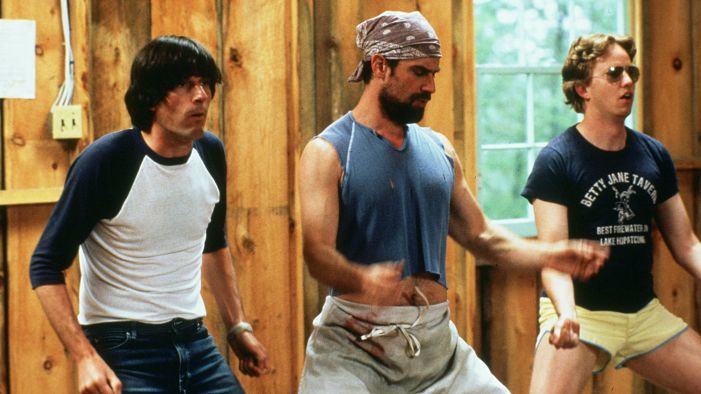Real Talk: Summer Camp Changed My Life

If you found your way to this article, I’m going to assume that, like myself, you are a veteran of that glorious institution called camp. And that’s a good thing, because camp is one of those things the appeal of which can be difficult to explain to outsiders. After all, you sleep in uninsulated cabins full of strangers, are deprived of your cell phone, and are forced on long marches through the wilderness.
But for a whole group of people, those privileged enough to know the taste of bug juice, camp was a place where you could reinvent yourself, find new strengths and new friends. Sometimes the promise of it was the only thing that kept you going through the school year.
I was lucky enough to have two camps over the course of my childhood, and they came with two very different sets of lessons.
The first was Holston Presbyterian Camp (the three-verse camp song of which I still know by heart). Holston was a week-long church camp I attended from early childhood through late middle school, and as the name implies, it was run in association with the Presbyterian Church. Although my family had been observant Episcopalians, by the time I got to camp, I already knew that the faith Holston espoused (and many of my camp friends experienced) was not a part of my spiritual makeup. Over the course of many summers, I went from “earnestly attempting to pray my way into believing” to “arguing with the camp chaplain over the message of Sodom and Gomorrah.” It was a perfect opportunity to learn to coexist with people who didn’t share my beliefs, and how to disagree with and be respectful of views other than my own.
But while church camp gave me a crash course in being different, by the time I was in middle school, I badly needed a place where I actually fit in. That was Camp Broadstone, which was geared towards academically gifted kids. They weren’t weird about it—we didn’t sit around solving equations—but I didn’t feel like I had to dumb myself down for people. I didn’t walk in with the reputation as “the weird, smart girl”; I was just Elaine. I made incredible friends there, partly because I found it so much easier to bond over activities like capture the flag than the more feminized social world of school. (I also had a foreshadowing of my future gayness when a girl climbed into my bunk one night, but at the time I couldn’t quite place why it made me feel like I was having a heart attack.)
I think camp might be most important for girls like me: smart, strong girls who loved to play, to win, to be the first up the climbing wall. The same qualities that made me an outsider at school were celebrated at camp. Those “cool kid” counselors didn’t mock me, they loved me. Camp let me know I wasn’t alone, in the time before the internet was the relentless affirmation machine it is today. It gave me just enough hope to keep me going, right up until the summer I aged out (which felt a bit like being kicked out of Narnia).
One of the worst things about being an adult (along with having a job and never recovering from injuries) is that summer doesn’t mean the same thing as when you were a kid. There is no magical vacation, no promise of months spent in blissful idleness, only a nostalgia you can never quite find a place to set down. Camp Broadstone is closed now, and it turns out that capture the flag was rigged all along (I should have known it was suspicious that it always ended in a tie). But I am still the person camp made me. Any time I have to charge down a trail or paddle a canoe or make a new friend, I’m back. I’m home.
Were you a camp kid? Can you taste the bug juice right now?












